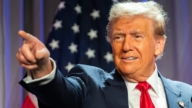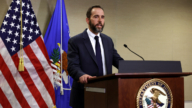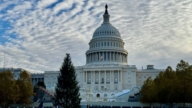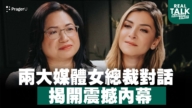【新唐人2011年10月27日讯】中共国务院10月24号将《关于加强反恐怖工作有关问题的决定(草案)》,提交人大常委会审议。这份备受争议的草案引起法律界和众多网民强烈批评。海内外专家指出,这项立法的反恐定义范围扩大化,成为中共借反恐为名打压维权和异议人士的工具。
中共的《反恐决定》把恐怖活动定义为:“以制造社会恐慌、胁迫国家机关或者国际组织为目地,采取暴力、破坏、恐吓或者其他手段,造成或者意图造成人员伤亡、重大财产损失、公共设施损坏、社会秩序混乱等严重社会危害的行为。”
根据这份草案的界定,“煽动、资助或者以其他方式协助实施上述活动的,也属于恐怖活动。”
北京知名律师、宪政学者韩一村接受记者采访指出,对恐怖活动这样的定义难以得到公众的接受。
韩一村:“我们不能认同,首先它定义范围扩大化了,恐怖活动、恐怖组织应当是一种以暴力为手段,反社会、反人类为目地,给社会大众造成恐惧,危害到公共利益的行为,但它不包括反政府、反国家机关。人民有反政府、反对执政党的权力。”
在新浪微博、腾讯微博和网易、天涯论坛上,数以千计的网民对反恐新法规发表评论,其中多数人持批评或质疑的态度。
一位网民说,“针对平民的才算是恐怖活动,针对党政机关和军队的算战斗人员,应当受日内瓦公约的保护。”另一位网民说,“是不是恐怖份子,难道由反恐机关的领导说了算?”
安徽省检察院前检查官沈良庆表示,中共违反国际公认的对恐怖活动的定义。
沈良庆:“如果是针对政府,特别是军警的,那是一种战争行为,那不能算恐怖,哪怕是非和平的手段,就包括一些暴力手段,那是战争行为,是有组织的暴力反叛。恐怖组织和恐怖活动最主要的是指,它针对的是无辜的平民,把平民作为屠杀对像。”
草案还确立,国家反恐工作领导机构负责认定恐怖活动、恐怖组织和人员,由公安部公布名单,并立即冻结相关组织或人员的资金。
北京宪政学者陈永苗指出,最近出台的一系列立法都是共产党主导的,以执政维稳为目地,并不能代表民意。
陈永苗:“当前例如说刑讼法的修订,或者身份证法的修订,朝警察国家发展的方向还是比较明显的。这反恐怖法案会扩大化,像反右运动那样扩大化,把异议人士、维权人士当作反恐怖的对像,加以处置。中国的反恐是为了掌握国家权力,为了共产党它自己掌握国家权力。”
近来,卡扎菲等独裁政权纷纷垮台,也有分析认为中共推出反恐立法是在防范。
流亡海外的民主人士魏京生表示,这个法案其实是针对新疆、西藏等少数民族、访民、维权人士和所有的异议人士和团体。
魏京生:“他们就是想借反恐为名,然后在国际上好像说的过去那样,合法的镇压反对派。在这方面,其实美国政府早已经多次警告他们,不得以反恐为名去镇压异议运动。但是中共还是要这么做,因为这有很大的欺骗性。”
也有评论指出,这个草案是把江泽民打压法轮功的招数“名誉上搞臭、经济上截断”,扩大到打压民间维权和异议人士。
沈良庆:“它一方面口头上喊着反恐,实际上它这种行为本身就是国家恐怖主义行为。也是因为当时民间甚至包括异议人士对迫害法轮功表现的有些无动于衷,这也导致后来它就更加有恃无恐了,逐渐的把镇压法轮功的一些非常残酷的恐怖手段,用到对付上访维权人士,最后扩展到对付异议。”
沈良庆援引马丁•尼莫拉牧师的墓志铭表示,当独裁专制政权迫害异议人士和团体,你不站出来说话,有一天这种迫害也会扩大到自己身上。
新唐人记者常春、李元翰、黎安安采访报导。
CCP’s Anti-terror Law, “A Good Cover-Up Tool”
On October 24, Chinese Communist Party (CCP) submitted
a draft of “Resolution For Enhancing Anti-terrorist Efforts.”
This resolution has been widely criticized
by legal professionals and netizens.
Experts point out, this resolution expands the terrorism’
definition and is a tool for eliminating social conflicts and public grievances under the name of terrorist activities.
The terrorist activity is defined in this draft as “behavior aimed
at generating social panic, intimidating state agencies or international organizations,
which has caused or intended to result in casualties,
major economic losses, damage to public property or social disorder through violence, destruction, threats or other means.”
The draft also states, “stirring up, funding or assisting
these activities are also considered terrorist activities.”
Renowned Beijing lawyer and political scholar Han Yicun
pointed out that for the general public the State Council’s definition of terrorism would be very hard to accept.
Han Yicun, “We don’t agree with it (the resolution).
First of all, it expands the definition of terrorism.
Terrorist’ activities and organizations should be only those,
using violent means, that are anti-social, anti-humane, create terror for the society, and endanger public interests.
It does not include the government itself
and government’s agencies.
Citizens have the legal right to stand up
against a government or a ruling party.”
On the Sina and Tencent microblogs, and on Wangyi
and Tianya forums, thousands of netizens questioned or criticized the new anti-terrorism resolution.
A netizen wrote, “Terrorist activities refer to only those,
targeting civilians.
Activities targeting government agency and the military
should be protected under the Geneva Conventions.”
Another netizen wrote, “Are the officials
in the anti-terror agencies to decide who is a terrorist?”
Former Persecutor from Anhui province Shen Liangqing
believes the CCP’s definition of terrorism violates the internationally
accepted definition.
Shen Liangqing, “Targeting government or military are
acts of war not terrorism, even if they used violent means.
Those are acts of war, an organized armed rebellion.
The point of terrorist organizations and activities
is to target innocent civilians, murdering civilians.”
The draft also states, officials in the anti-terrorism agencies
decide what is a terrorist activity and who is a terrorist.
Then the police department will release the list of names
and freeze bank accounts associated with such individuals.
Beijing Political Scholar Chen Yongmiao points out,
that the recent resolutions are all led by the CCP.
Their goal is to maintain stability and CCP’s rule,
and they do not represent the public will.
Chen Yongmiao, “The recent changes in the criminal’ and
the ID cards’ law are obviously for a country ruled by police.
This expansion of the anti-terror law is like the Anti-Rightist
movement, treating dissidents and human rights activists as terrorist and then eliminate them.
CCP’s anti-terrorism is to mainland its ruling power,
for the benefit of the CCP to maintain control of the country.”
Gaddafi’ and other dictators’ recent falls made some wonder
if CCP regime’s anti-terrorism measures aren’t for protection.
Overseas Chinese democracy activist Wei Jingsheng thinks,
this resolution targets Xinjiang, Tibet, petitioners, rights activists and all other dissidents’ organizations.
Wei Jingsheng, “They are using the cover of anti-terrorism,
a term that is somewhat accepted internationally, to legalize the persecution of dissidents.
The US government has warned them many times before
to not suppress dissidents under the name of anti-terrorism.
The CCP still wants to do this
because it’s a good cover-up tool.”
Experts also pointed out, this resolution could be another of
Jiang Zemin’s methods to persecute Falun Gong, expanding the crack down on civilian activists and dissidents.
Shen Liangqing, “On one side it’s yelling anti-terrorism,
but in reality this is a state committing terrorist activity.
The civilian dissidents initially acted cold
toward the persecution of Falun Gong.
Thus CCP became more confident and started to employ
more cruel methods on Falun Gong and human rights activists.
Eventually this expanded to include political dissidents.”
Shen paraphrased Pastor Martin Niemoller words, that when
a dictatorship persecutes dissidents’ groups and you don’t speak out, the persecution will expand to you one day.
NTD reporters Chang Chun, Li Yuanhan and Li Anan



























